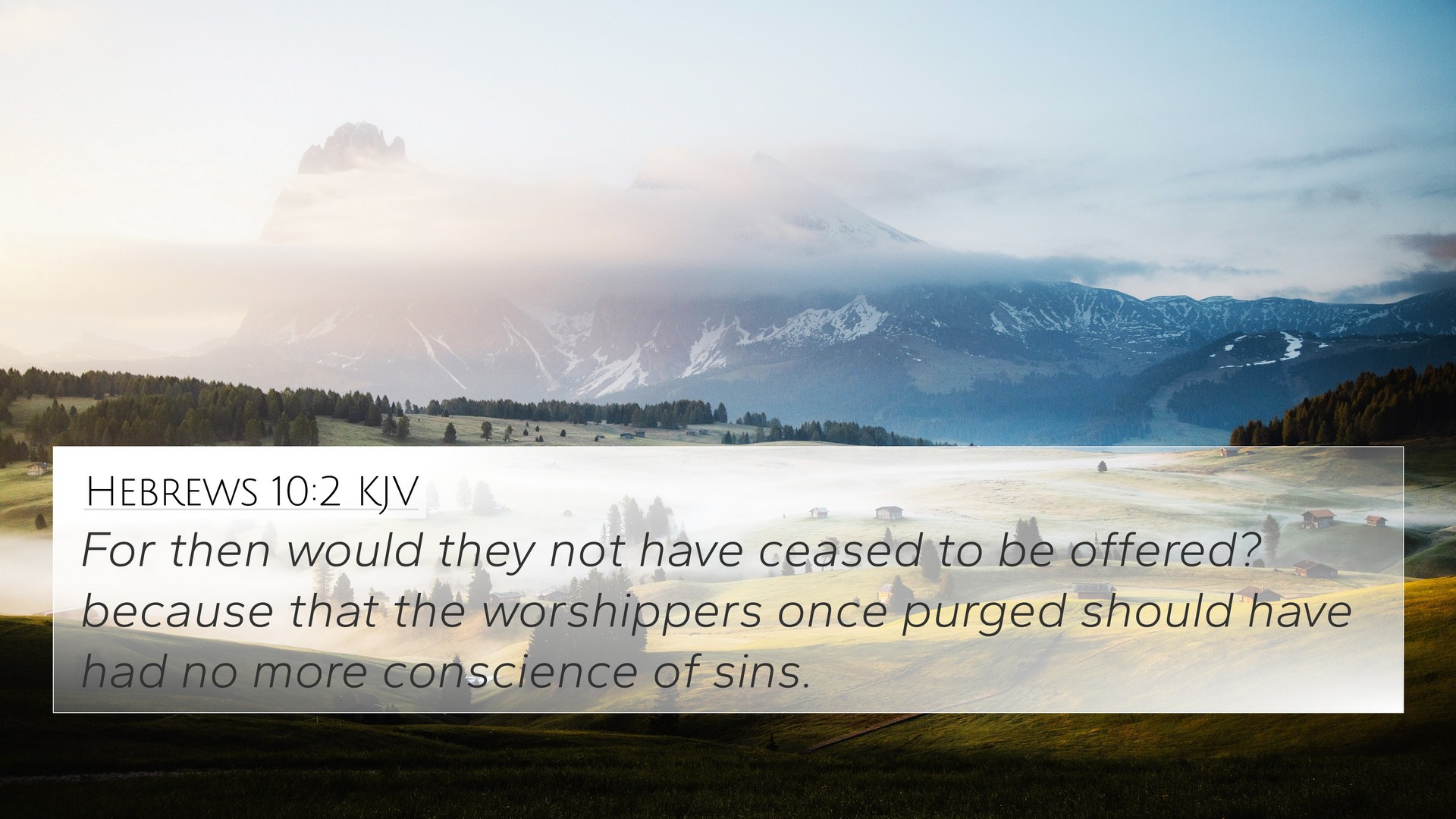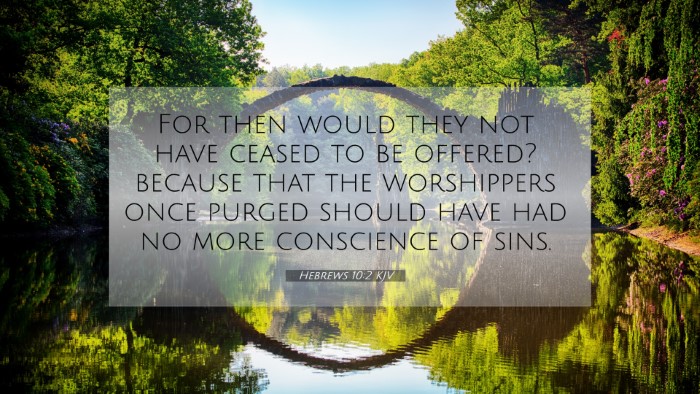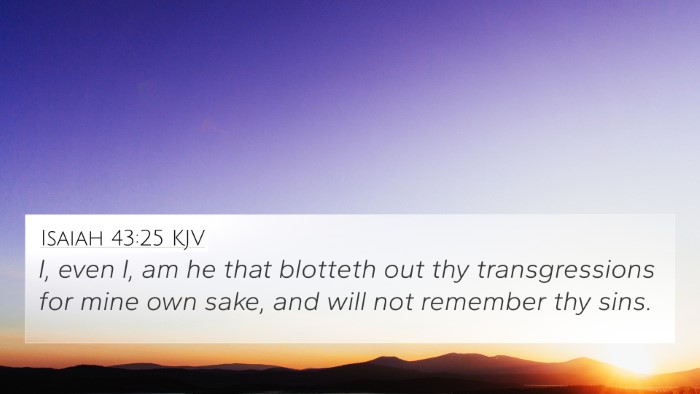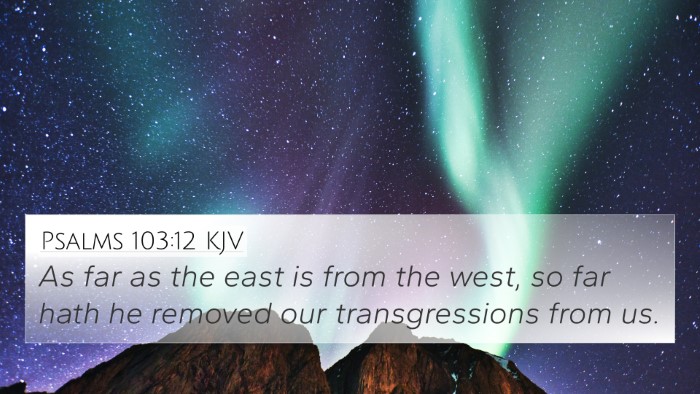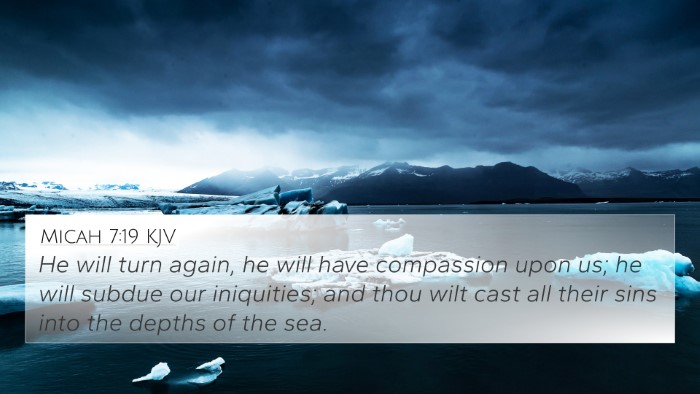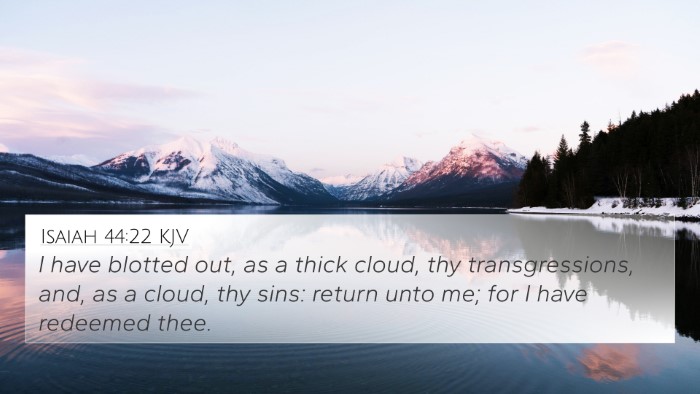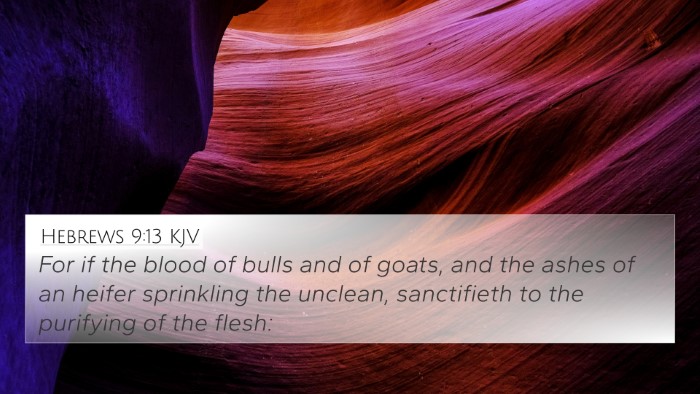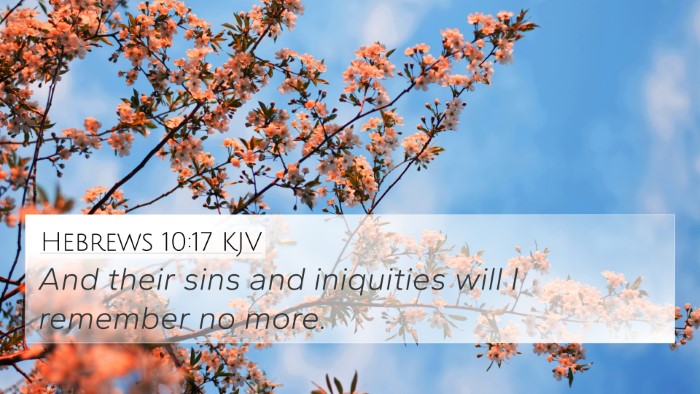Meaning and Interpretation of Hebrews 10:2
Hebrews 10:2 touches on deep theological concepts regarding the efficacy of sacrifices under the Old Covenant vis-à-vis the New Covenant established through Christ. Below is a summary of interpretations based on several public domain commentaries.
Verse Context
The verse reads: "For then would they not have ceased to be offered? Because that the worshippers once purged should have had no more conscience of sins." (Hebrews 10:2, KJV). This verse is situated in a passage discussing the limitations of the Old Testament sacrificial system.
Interpretations from Notable Commentators
-
Matthew Henry:
Henry highlights that the continual offering of sacrifices indicates their ineffectiveness in truly removing sin. If the sacrifices were sufficient, they would have ceased, as forgiveness would be full and final. This illustrates the inadequacy of the old system and the need for a once-and-for-all sacrifice in Christ.
-
Albert Barnes:
Barnes notes that the frequent offering of sacrifices suggests that they could not bring true peace to the conscience. He emphasizes that the Old Covenant was designed to point towards the ultimate sacrifice, which is fulfilled in Jesus Christ. The worshippers under the old system had a continual awareness of their sins because the sacrifices could not provide a lasting solution.
-
Adam Clarke:
Clarke elaborates that the repetition of the sacrificial system serves as a reminder of sin rather than its removal. He underscores that the sacrifices were a shadow of the good things to come, namely, the redemptive work of Christ which truly cleanses and transforms the believer.
Thematic Connections
This verse serves as a critical point in understanding the larger narrative of the Bible, illustrating the transition from the Old Covenant to the New Covenant. There are notable connections between this verse and various other biblical texts, demonstrating the consistency of God's plan for redemption.
Related Bible Cross-References
- Hebrews 9:9-10: Discusses the limitations of the Old Covenant and that it served as a parable until the time of reformation.
- Hebrews 10:4: States that it is impossible for the blood of bulls and goats to take away sins.
- Romans 8:1: "There is therefore now no condemnation to them which are in Christ Jesus," illustrating the complete salvation through Christ.
- Colossians 2:17: Indicates that the Old Testament practices were a shadow of things to come, pointing to Christ.
- 1 Peter 1:19: Talks about Christ as a lamb without blemish, highlighting the perfect sacrifice.
- Psalm 40:6-8: A prophetic insight into the insufficiency of sacrifices, ultimately fulfilled in Christ's willingness to do God’s will.
- John 1:29: "Behold the Lamb of God, which taketh away the sin of the world," affirming Jesus as the perfect sacrifice.
- Isaiah 53:5: Prophesies about the suffering servant, whose sacrifice would bring healing and forgiveness.
- Hebrews 7:27: Highlights that Christ does not need daily sacrifices but offers Himself once for all.
- Galatians 3:24: Describes the law as our schoolmaster to bring us unto Christ, pointing to the role of sacrificial systems in leading to true redemption.
Conclusion
Hebrews 10:2 encapsulates the essence of why the Old Covenant sacrifices were insufficient, leading to a deeper understanding of the New Covenant through Jesus Christ. By linking this verse with other scriptural references, one can grasp the overarching theme of redemption, the prophetic foreshadowing, and the fulfillment found in Christ.
This verse invites believers to examine the connections between various Scriptures and to reflect on the significance of the sacrifice of Christ in the context of the entire biblical narrative.
Tools for Bible Cross-Referencing
For those exploring connections between biblical texts, utilizing tools such as a Bible concordance or a Bible cross-reference guide can enhance understanding and facilitate deeper study. These resources help identify Bible verses that relate to each other and encourage comparative Bible verse analysis.
